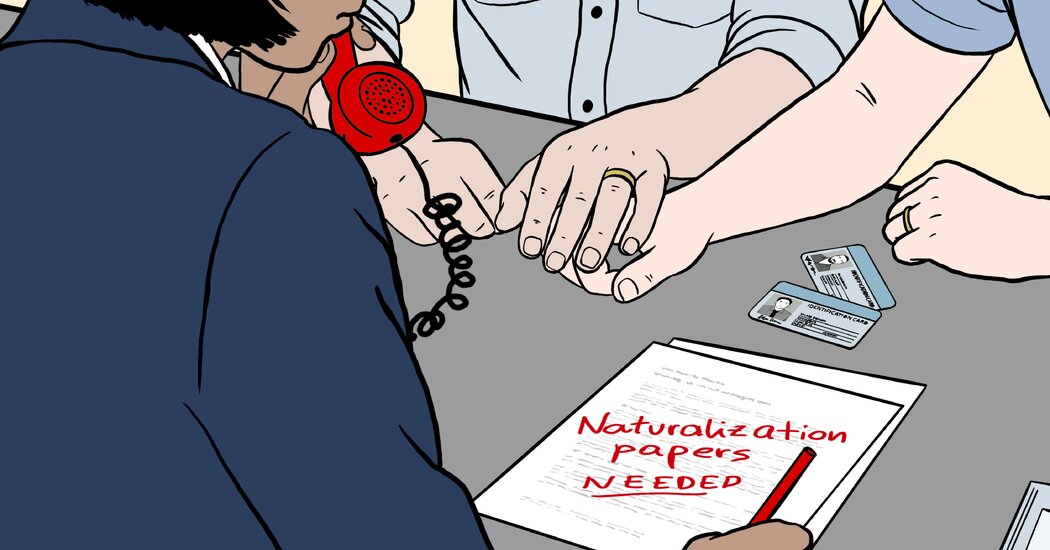Q: I’m a real estate broker in Hudson, N.Y. I have two buyers, men who married in New York State and are also foreign-born U.S. citizens. The mortgage underwriter asked for one of my buyers’ proof of citizenship in the form of his “naturalization papers.” He asked whether the buyer had a U.S. passport. I said of course, and the underwriter said a copy would be sufficient. I’m not sure why he asked for documents from only one of the buyers, as they are both on the mortgage. Is this standard procedure? It seems like a bigoted practice.
A: The request for “naturalization papers” for only one buyer could be a case of discrimination, but it depends on the details of the mortgage application and the intent of the underwriter.
“A lender, dealer, or broker cannot discriminate on the basis of national origin, but they are allowed to ask about permanent residency and immigration status,” said Stacey L. Tutt, senior staff attorney covering homeownership at the National Housing Law Project.
While citizenship is not required to obtain a mortgage, immigration status is a factor in mortgage eligibility. In March, the Department of Housing and Urban Development updated its residency requirements for loans insured by the Federal Housing Administration, “emphasizing the prioritization of federal resources to protect the financial interests of American citizens,” and eliminating eligibility for nonpermanent residents.
The new HUD rules could lead to questions that unlawfully single someone out based on their nation of origin, accent or language, even though national origin is a legally protected class, Ms. Tutt said. Discriminatory questions could be targeted at U.S. citizens until their citizenship is established by the documents they submit.
In this case, the underwriter’s selective request raises anti-discrimination concerns, particularly if the request was prompted by stereotypes regarding national origin, citizenship or immigration status, said Andrew Lieb, who practices discrimination law in New York.
However, asking for naturalization papers or a passport is consistent with verifying identity necessary to underwrite the mortgage. It’s possible that the underwriter had sufficient identifying information for one buyer, but not the other.
“Asking without discriminatory animus is not discrimination,” Mr. Lieb said. To prove discrimination, you’d have to show that one protected class was deliberately treated differently.
If the underwriter had been more transparent about the rules and why they requested documents for only one buyer, they could have avoided the appearance of discrimination, said Anna DeSimone, who writes books about mortgages and fair lending. “‘This is standard and applies to everyone’ is the only thing people need to hear,” she said.
If you suspect that your clients were treated unfairly, you can refer them to your local fair housing center so an expert can look at their case.
The post Do Home Buyers Have to Show Proof of Citizenship? appeared first on New York Times.




